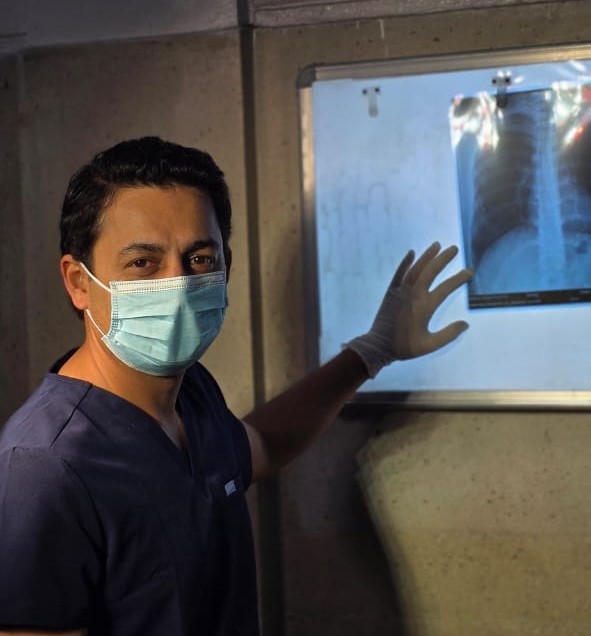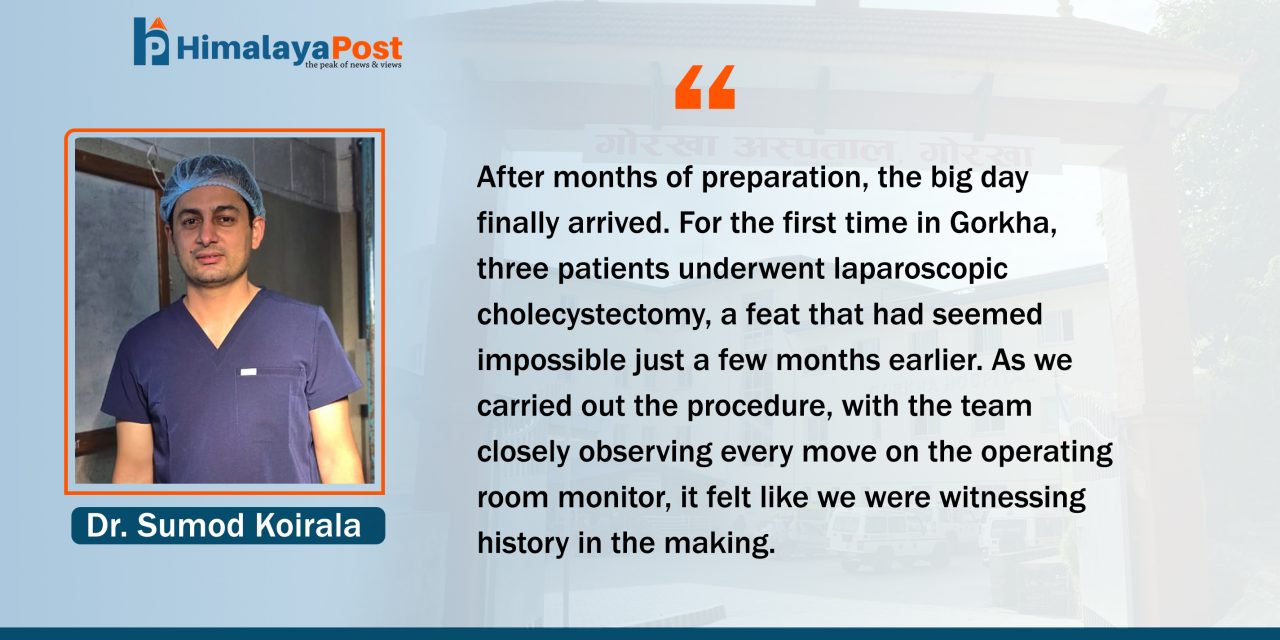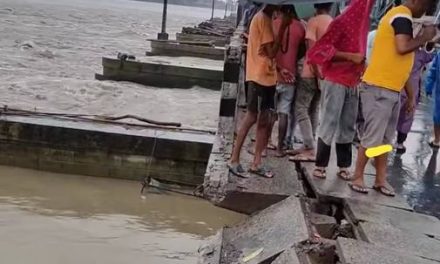– Dr. Sumod Koirala
Tucked away in the peaceful hills of Gorkha, a district hospital has been a crucial resource, providing only basic surgeries with spinal and local anesthesia. However, earlier this year, a significant change took place, ushering in a new era of resilience and hope for rural Nepal.

Dr. Sumod Koirala
As a general surgeon and lecturer at the Patan Academy of Health Sciences, I experienced this transformation first-hand. Our academy partnered with the Nepalese government to improve surgical services in remote hospitals, a mission that required creativity, perseverance, and a bit of courage.
When I first entered the hospital, the challenges were glaringly obvious. The operating room was sparsely equipped, there was no biomedical engineer available to install new technology, and prior to my arrival, a lone surgeon was trying to cope with an excessive caseload and scarce resources. These systemic gaps were hindering the hospital’s potential.
However, infrastructure was just one aspect of the challenge. Persuading individuals to agree to surgery presented another significant obstacle. Fear, distrust, and a lack of understanding frequently resulted in perilous delays in obtaining care, exacerbating health problems. The demographics of the community further complicated matters, as most patients were either under 20 or over 50, while the working-age population had mostly relocated in pursuit of better opportunities.
When I was assigned to Gorkha District Hospital, I experienced a blend of excitement and anxiety. My colleagues cautioned me, “Major surgeries in a resource-limited setting can be risky.”
They were correct. Even standard procedures proved to be difficult, and the hospital was missing many crucial facilities. However, upon my arrival, I witnessed something that inspired me to look past the challenges: hope, determination, and a community that deserved better care.
As the days turned into weeks, I found myself questioning my purpose. Was I merely here to maintain the status quo, or could I challenge the limits of what we could achieve? It became evident that if we wanted the community to have faith in the hospital, we had to undertake something revolutionary. That’s when I made the decision to implement laparoscopic surgery a daring move for a district hospital with limited resources and a small team. Doubts surfaced, both from within the hospital and from the community. Could we truly pull this off? The concerns were legitimate, but my resolve was even stronger.
Understanding the challenges we faced, our team chose to set ambitious goals. Together with the medical superintendent, our colleagues from radiology, anesthesia, surgery, and the committed operating room staff, we embarked on the journey to implement laparoscopic cholecystectomy, a contemporary and minimally invasive technique for gallstone removal, at Gorkha District Hospital. The advantages of laparoscopic surgery were evident: quicker recovery times, reduced complications, and, most importantly, a restored confidence in the hospital’s abilities.
Without a biomedical engineer on hand, we decided to take charge and set up the laparoscopic equipment ourselves. We dedicated numerous hours to running simulations, anticipating every possible situation. The operating room team, particularly the nurses who had experience with minimally invasive surgery, were instrumental in boosting our confidence to proceed. It was a genuine team effort fueled by determination, resilience, and the conviction that we could introduce something innovative and transformative to Gorkha.
After months of preparation, the big day finally arrived. For the first time in Gorkha, three patients underwent laparoscopic cholecystectomy, a feat that had seemed impossible just a few months earlier. As we carried out the procedure, with the team closely observing every move on the operating room monitor, it felt like we were witnessing history in the making.
But this wasn’t just about surgery; it represented a significant step forward. For the hospital staff, it demonstrated that even the most daunting challenges could be tackled with commitment and collaboration. For the community, it sent a powerful message of hope that quality healthcare was not limited to urban areas, but accessible to them as well.
This achievement marks a significant turning point. Laparoscopic surgery, which was once limited to urban centers, is now a standard practice at Gorkha District Hospital. Patients can now receive treatment without the need for long and tiring travels. A new era in rural healthcare has started, and it is positively transforming lives.
This achievement has not only marked a technical success but has also ignited crucial discussions about the potential of investing in rural healthcare in Nepal. It demonstrates that innovation goes beyond technology; it involves people. Doctors, nurses, administrators, and the community are uniting, overcoming obstacles, and accomplishing remarkable things.
Working at Gorkha District Hospital has presented numerous challenges, from limited resources to the ongoing task of gaining the community’s trust. However, it has also been immensely rewarding, reinforcing my belief in the significance of equity in healthcare and the strength of teamwork. This achievement is just the beginning; many other district hospitals in Nepal encounter similar difficulties, and what we’ve accomplished in Gorkha demonstrates that with determination and creativity, progress is achievable even with minimal resources.
Reflecting on this journey, I feel optimistic about the future. If we can introduce advanced surgical techniques to the hills of Gorkha, what’s preventing us from transforming healthcare throughout Nepal? We must pose this question and, more importantly, act. This article serves as a call to communities, healthcare professionals, and governments to support rural healthcare, embrace innovative solutions, and believe in the power of collaboration, because when we unite, we can accomplish remarkable feats, even something as intricate as laparoscopic surgery in a small district hospital.
(Dr. Koirala is associated with the Department of General and Gastro Surgery, Patan Academy of Health Sciences)





